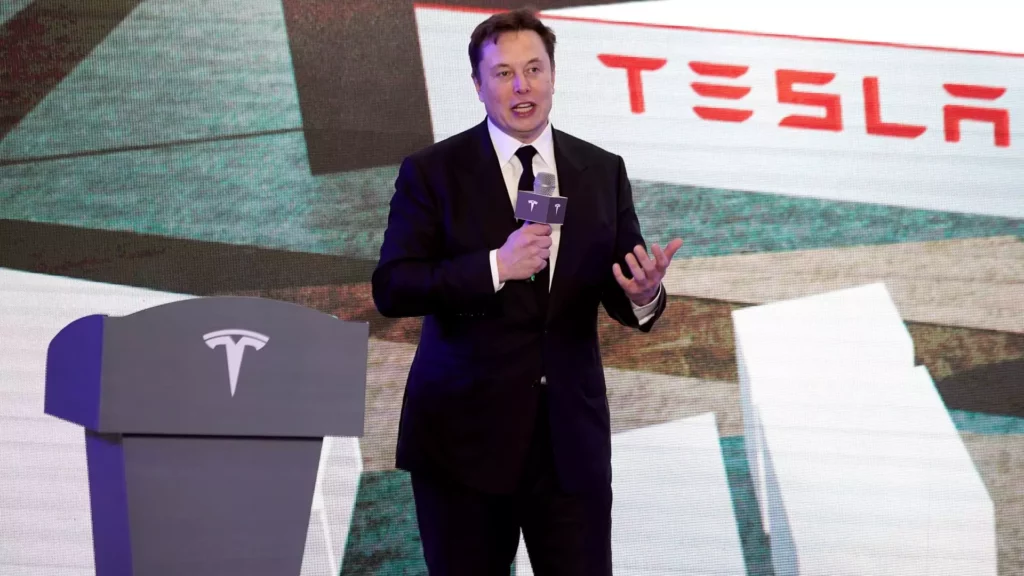Elon Musk’s Tesla has stirred the pot with a series of recent changes to its corporate bylaws, displaying what many may see as a concerning trend within the corporate governance landscape. By imposing a hefty 3% ownership requirement for shareholders to pursue derivative lawsuits, Tesla has effectively barricaded disgruntled investors from seeking redress. This shift aligns with Texas state law, signaling a potential transformation in how corporations can operate, seemingly prioritizing the company’s management over shareholder engagement.
For investors, this change signifies a new reality where the threshold to question corporate decisions has escalated dramatically. With Tesla’s market capitalization soaring beyond $1 trillion, the financial commitment required to challenge the company is now well over $30 billion for a mere fraction of ownership. Such changes will likely deter all but the wealthiest players — leaving a significant portion of regular investors disenfranchised and marginalized.
Corporate Discretion vs. Shareholder Rights
This shift toward stringent bylaws brings into sharp focus the ongoing tension between the necessity for corporate managers to operate distinctly and the fundamental rights of shareholders to demand accountability. For years, corporate law has acknowledged shareholder input as vital for ethical governance, ensuring that those with a financial stake in the company could weigh in on critical decisions.
Yet, with changes like these, there are growing concerns that corporate executives—armed now with these legal shields—will focus primarily on avoiding disputes rather than earnestly considering the best interests of the shareholders. Law scholar Ann Lipton aptly pointed out that the new structure not only incentivizes risky oversight patterns but also fundamentally alters the dynamic between corporate ambitions and shareholder expectations.
In retrospect, Musk’s infamous advice—”Never incorporate your company in the state of Delaware”—seems less about sound business strategy and more about shielding high-ranking executives from accountability. By moving operations to Texas, Tesla is not merely finding a more business-friendly environment, but is also encapsulating a broader trend wherein many corporations prioritize their discretion over public trust.
The Class Divide in Corporate Governance
The introduction of such thresholds mirrors deeper systemic inequities ingrained in corporate structures. Individual shareholders find themselves drowning amidst the ocean of institutional investors, often silencing their voices in favor of mega-funds and wealthy elites. With the financial barrier raised so high, one must ponder whether Tesla, and other corporations following this precedent, are deliberately marginalizing the participation of small investors.
It raises the question—are we witnessing a conscious effort to stunt the influence of individual investors, and if so, what does that entail for the broader economic picture? If only institutional investors and the financially robust can impact governance decisions, we risk cultivating a corporate environment where the majority of shareholders, who heavily invest their faith and funds into these companies, remain voiceless.
A Culture Lacking Transparency
Tesla’s reluctance to address inquiries surrounding these changes further exemplifies a concerning corporate culture wherein transparency is sacrificed at the altar of operational convenience. In fact, the lack of communication about such critical changes speaks volumes—not just about Tesla, but about an emerging norm where corporations adopt a cloak of secrecy while deciding on pivotal governance structures.
As Tesla is synonymous with innovation and market disruption, these adjustments threaten to unravel investor confidence and challenge the ethical frameworks that underpin corporate governance. Not only do shareholders deserve clarity regarding such foundational matters, but the public as a whole should hold corporations accountable to a standard that reinforces trust.
The Unfolding Scrutiny and Ethical Considerations
These developments will invariably invite scrutiny from both regulatory authorities and public observers intrigued by corporate ethics. Shareholder advocacy groups could challenge this trend, raising alarms about the potential erosion of essential rights that allow ordinary investors to safeguard their interests. The complexity of negotiating corporate discretion and shareholder rights will undoubtedly become a focal point for discourse, and stakeholders must remain vigilant.
As Tesla and similar corporations chart this murky waters in corporate governance, the wider ramifications remain to be seen. Are we approaching a phase characterized by corporate immunity, or can a balance reinstate some measure of accountability? The financial ecosystem in America continues to evolve, and watching how these adjustments play out will be critical for all involved, from consumers to investors to policymakers. Ultimately, the quest for a fair and equitable corporate governance system demands vigilance and a collective commitment to ensure that the balance of power does not merely succumb to executive interests.









Leave a Reply